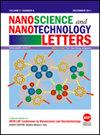Liposomal Nanoparticle-Mediated miR-27b Influences Osteogenic Differentiation of Bone Marrow Mesenchymal Stem Cells via Peroxisome Proliferator-Activated Receptor Gamma in a Microgravity Environment
引用次数: 0
Abstract
This study was aimed at analyzing the effects of liposomal nanoparticle-based miR-27b on PPARγ and osteogenic differentiation of bone marrow mesenchymal stem cells under microgravity. The rat bone marrow mesenchymal stem cells were set as the research object, and the gyroscope was employed for simulation of microgravity. The cells were randomized into four groups, including the experimental group A (simulated microgravity+liposomal nanoparticle-mediated miR-27b transfection group), as well as the control groups: group B (simulated microgravity+negative control group), group C (simulated microgravity+transfection reagent group) and group D (normal gravity+liposomal nanoparticle-mediatedmiR-27b transfection group). After a two-week osteogenic induction in vitro, staining was performed to assess the lipogenesis rate of the samples. In addition, ALP activity and PPARγ mRNA level was detected. The number of alizarin staining-positive osteogenic nodules and ALP activity (0.21±0.44 King unit) in group A was significantly diminished compared to those in group B, C, and D. Moreover, its lipogenesis rate (9.31±1.02%) and PPARγ mRNA level (1.86±0.39) were significantly higher than those in group B, C, and D (P < 0.05). The number of alizarin staining-positive osteogenic nodules and ALP activity (0.96±0.18 King unit) in group D were significantly reduced in comparison with those in groups B and C, while the lipogenesis rate (4.86±0.77%) and PPARγ mRNA level (0.93±0.34) were significantly higher than those in group B and C (P < 0.05) without difference between group B and group C (P > 0.05). Under a microgravity condition, liposomal nanoparticle-mediated miR-27b can impede the differentiation of BMSCs into osteoblasts via regulating PPARγ signal transduction.在微重力环境下,脂质体纳米颗粒介导的miR-27b通过过氧化物酶体增殖物激活受体γ影响骨髓间充质干细胞的成骨分化
本研究旨在分析基于脂质体纳米颗粒的miR-27b对微重力下骨髓间充质干细胞PPARγ和成骨分化的影响。以大鼠骨髓间充质干细胞为研究对象,利用陀螺仪模拟微重力环境。将细胞随机分为实验A组(模拟微重力+脂质体纳米颗粒介导的miR-27b转染组)和对照组:B组(模拟微重力+阴性对照组)、C组(模拟微重力+转染试剂组)和D组(正常重力+脂质体纳米颗粒介导的miR-27b转染组)。体外成骨诱导两周后,染色评估样品的脂肪生成率。同时检测ALP活性和PPARγ mRNA水平。与B、C、D组相比,A组茜素染色阳性的成骨结节数量和ALP活性(0.21±0.44 King unit)均显著降低,脂肪生成率(9.31±1.02%)和PPARγ mRNA水平(1.86±0.39)均显著高于B、C、D组(P < 0.05)。与B、C组相比,D组茜素染色阳性成骨结节数和ALP活性(0.96±0.18 King unit)显著降低,脂肪生成率(4.86±0.77%)和PPARγ mRNA水平(0.93±0.34)显著高于B、C组(P < 0.05), B、C组差异无统计学意义(P < 0.05)。在微重力条件下,脂质体纳米颗粒介导的miR-27b可通过调节PPARγ信号转导阻碍骨髓间充质干细胞向成骨细胞的分化。
本文章由计算机程序翻译,如有差异,请以英文原文为准。
求助全文
约1分钟内获得全文
求助全文
来源期刊

Nanoscience and Nanotechnology Letters
Physical, Chemical & Earth Sciences-MATERIALS SCIENCE, MULTIDISCIPLINARY
自引率
0.00%
发文量
0
审稿时长
2.6 months
 求助内容:
求助内容: 应助结果提醒方式:
应助结果提醒方式:


